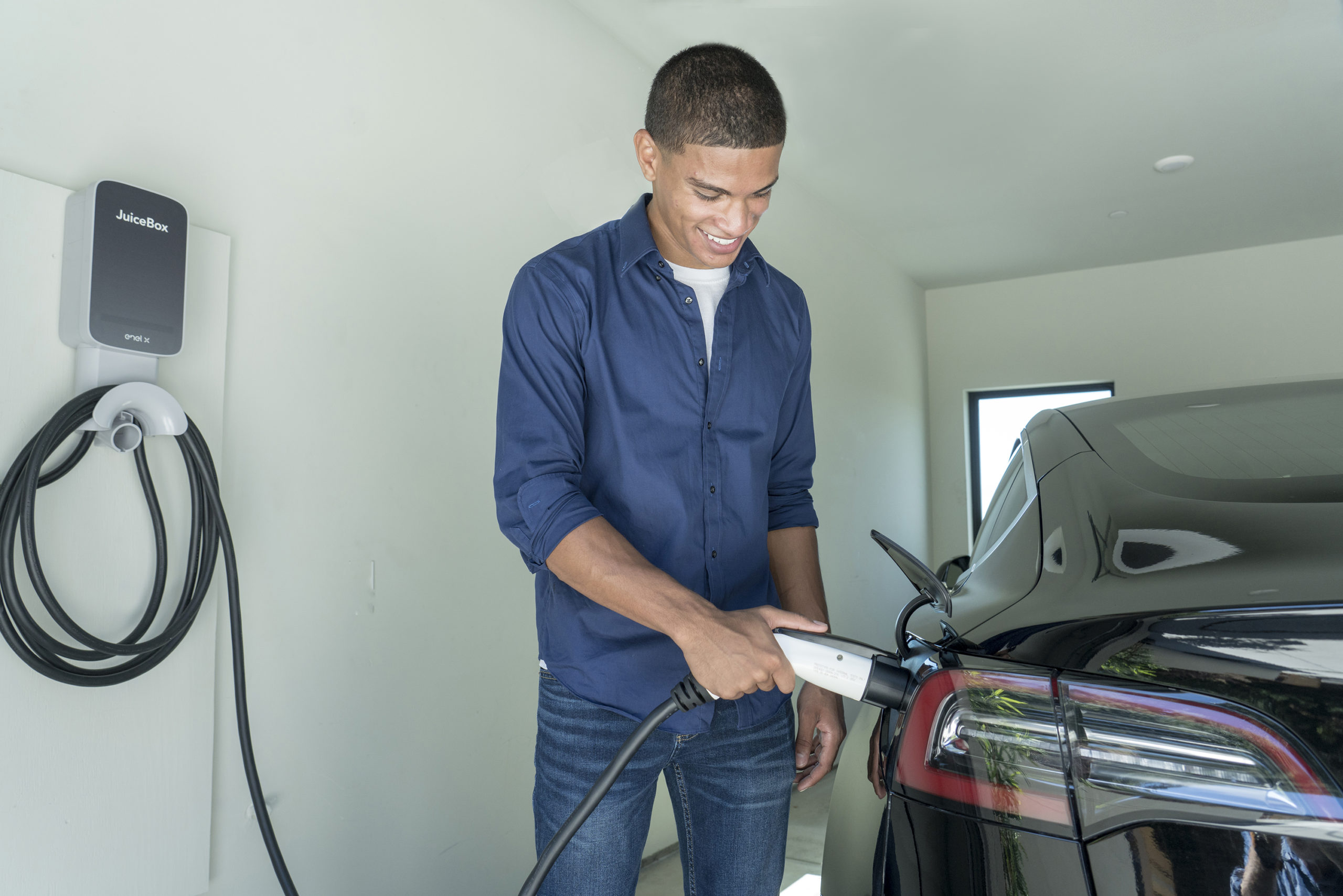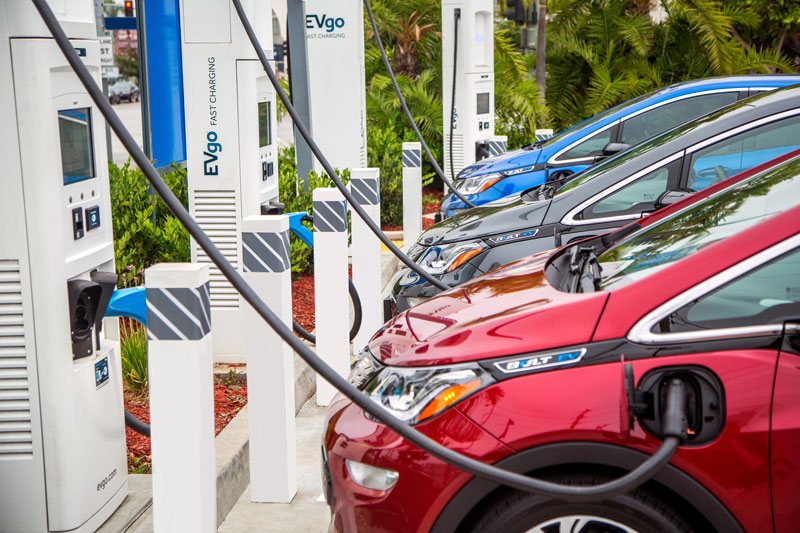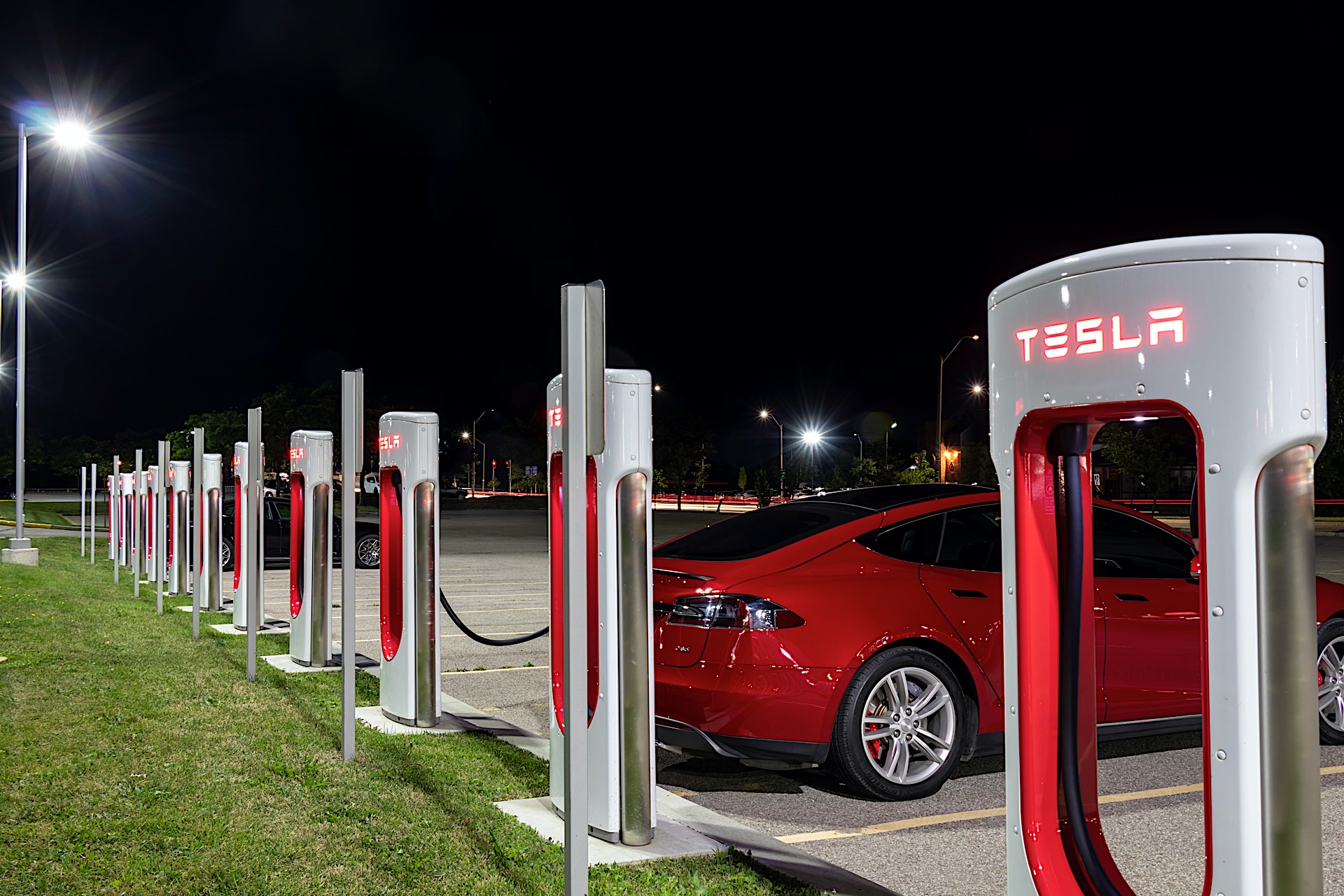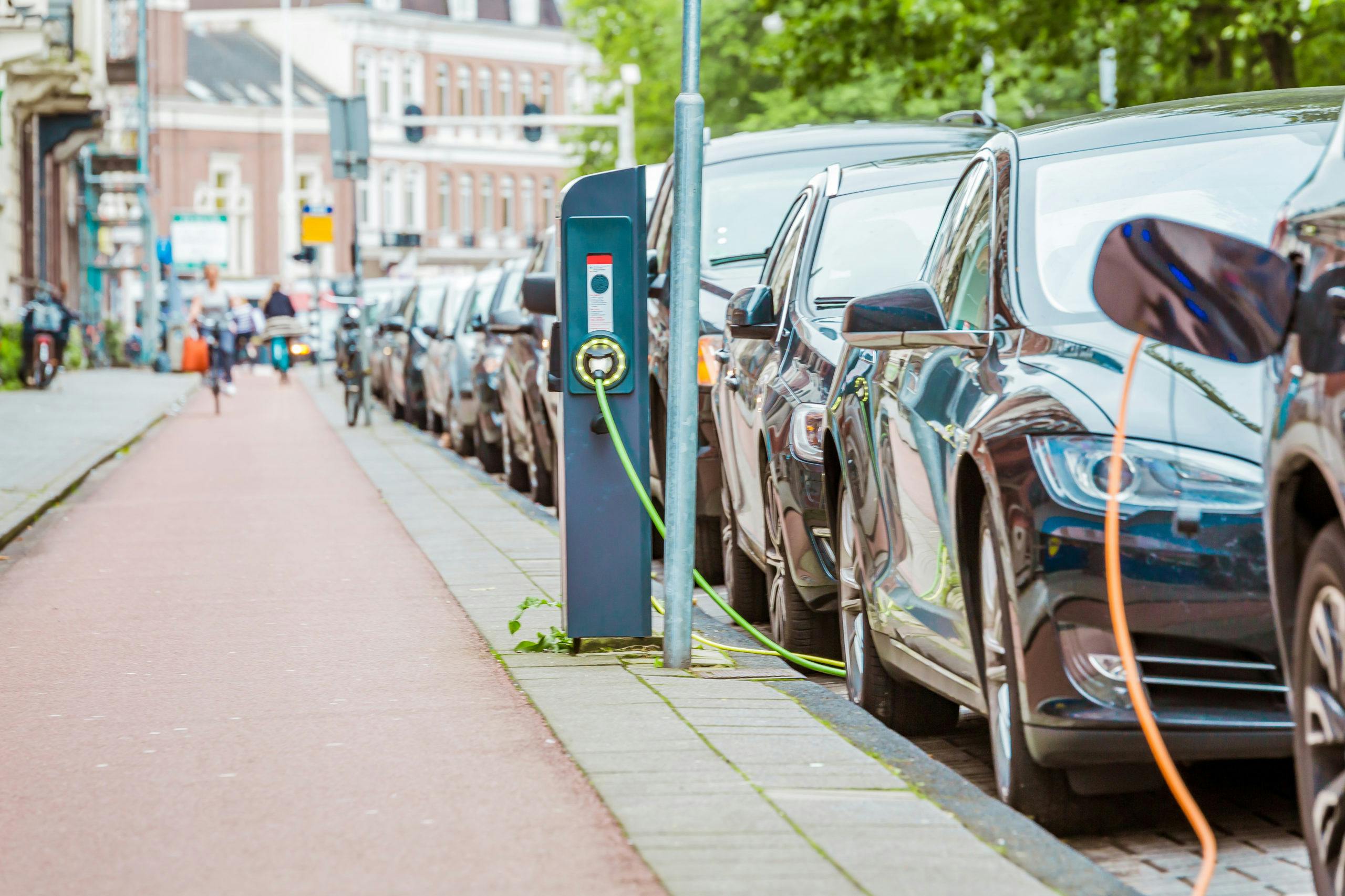“How much DOES it cost to charge an EV?”
In short, less than a gas car. Sometimes it can be free. It’s not incredibly straightforward, but we’ll break it down to help demystify the costs of charging an EV.
Calculating charging costs

In a sense, EVs operate somewhat similar to gas-powered vehicles in that owners fill them up and their onboard computers calculate efficiency, similar to miles per gallon. When charging an EV, we typically refer to the units of energy as Kilowatts or kW — these are what your unit cost will be when charging. When charging your EV, you’ll be pumping several kW into the battery pack similar to filling a gas tank.
A 2020 Tesla Model 3 Long Range has an 82 kWh battery pack, meaning it can store exactly that amount of energy. The cost to charge its battery is the kW price times the battery size. So, let’s say you were lucky enough to roll into a fast-charging station with zero-percent charge left, and the cost per kWh was $.40. Your total cost to charge from empty to full would be $32.80, or 82 x $.40.
Charging at home

One of the number-one perks of owning an EV is that you can fill your “tank” at home and start each day with a full charge. Our recommendation is to use 240V charging capability whenever possible, which in most circumstances provide a full charge overnight. Regular wall plugs can work in a pinch, but are painfully slow and only advisable in a pinch.
SAVE MONEY: How to charge an EV for free
Whether you’re using a 240V outlet in the garage that pulls double duty as a clothing drier plug or decide to have one installed, you won’t regret the extra power. This setup will add between 20-50 miles of range to your vehicle when plugged in, compared to 3-5 miles of range added on a 120V connection.
But what will this cost?
The average cost for electricity in the U.S. is right around $.13 per kW. Using the example above (Tesla Model 3 Long Range), we can quickly calculate that charging the car completely costs $10.66. However we cannot recommend enough that you look into your utility plan’s possible time of day rate plans, which vary the price based on the electric grid’s demand. These plans charge higher during the day, but drop the price drastically during the night – which is perfect for EV owners.
Whether you stay on a normal utility plan or switch to a time of day rate plan, charging at home is one of the least-expensive and recommended options.
Charging at work
Some workplaces offer subscription or free charging for employees. Based on your needs, a subscription plan may make sense, but be sure to do the math. Alternatively, free workplace charging is obviously the real winner. The EV Pulse office has a Level 2 charger, free for employees, which makes workplace charging a no-brainer for us.
Charging on a road trip

Traveling farther than your battery can deliver range for in a day means you’ll be relying on DC Fast charging to top off your battery. DC fast chargers calculate their rates in two ways, by the amount of energy dispensed or by the time a vehicle is plugged in. This varies by state and provider.
If it’s a Tesla you’re considering, you’ll quickly become familiar with the Supercharger network. All other EVs will be using DC fast chargers from companies like Charge Point and EVGo among others. These can be found using your in-car telematics or a mobile phone app – we like Plug Share.
GROCERY JUICE: Electrify America partners with Meijer
Either way, these stations will deliver a significant amount of power and get you back on the road in short order. Most stations will add over 100 miles of range in as little as 20 minutes. At these stations you’re paying for convenience. The cost per kW is significantly higher than at home and can range based on demand and time of day also.
Tesla Supercharger stations cost $.28 per kW – but this can be higher if demand is high.
DC fast charging stations that charge by the kW are generally in the $.25-$.40 per kW range, or $20.50-$32.80 for the Tesla example we’ve been using.
The stations that charge by the minute are generally in the $.12-$.32 range. The cost to fully charge should be similar to the per kW example.
Charging everywhere else

Grocery stores, hotels, shopping malls, parking garages and more are steadily adopting EV charging. The cost in these locations is sometimes free or like DC fast chargers, bill customers by the energy dispersed or time plugged in. These are almost all Level 2 type chargers and therefore charge at a slower rate than the stations you generally see along the freeway, but are perfect for longer visits. If there’s a cost associated with plugging in, you can expect to shell out a couple bucks for a few dozen miles in range gained.
EV 101: How to charge an electric vehicle
Charging an EV is a lot easier than it may sound, and is almost always less expensive than buying gas. For example, that Tesla Model 3 Long Range can travel 353 miles on a single charge. If charged at home at a rate of $13. Per kW ($10.66), your cost is just $.03 per mile.
Comparing this to a similar gas-powered car returns a stark difference in per mile energy cost. For example, a 2020 BMW 330i xDrive delivers 34 mpg on the highway. And according to AAA, the national average for a gallon of premium fuel is $2.83, resulting in a per mile cost to operate of about $.08. While this doesn’t appear too spendy, it’s nearly three times the cost of electricity for the Tesla.
Updated (7:56am EST, 01/05/2021): Free charging link added.

